Ditte Akker is an experienced traveller with a keen interest in culture and nature who has seen many different places in the world over the years. She has also lived and worked in several different countries. In 2007, Ditte got a job as a teacher at the Swedish School in Beijing and moved there with her husband Bosse. It was a total of four exciting years in the bustling Asian metropolis. We are of course curious to hear more about this! What is it really like to live in such a different country?
Today, Ditte and Bosse are back in Sweden, but they regularly commute to their second home in Torrevieja, Spain. From time to time they also travel to experience new and exciting destinations. If you want to read more, you can follow Ditte's travels and reflections on everyday life on the blog. Ditte Mitt i ...
Table of contents
How did you move to Beijing and how long did you stay there?
The move to Beijing came quite suddenly in autumn 2006. I have travelled extensively throughout my life and had previously worked abroad on two occasions, in Tunisia and Thailand. In Tunisia, I worked as a tour guide in the early 1970s. In 1980, I had the opportunity through UNHCR to work in refugee camps in Thailand, with Cambodian refugees.
The work lasted three months and was extremely intense and demanding, so a longer period would not have been possible. The years went by and there were many trips around the world. I'm a teacher at heart; gymnastics director, middle school teacher and special needs teacher, and by chance I happened to look at the Swedish National Agency for Education's website for vacant teaching positions abroad. Our life situation was such that it was a perfect fit!
I had a good job in Upplands Väsby in a preparatory class for pupils who had come to Sweden and did not master the Swedish language, and I enjoyed it very much. But I was tempted to go abroad and there was a vacancy at the Swedish School in Beijing that I applied for.
There were many applicants and after interviews and discussions I was offered the position and by the beginning of 2007 I would be in place and my husband would be 'accompanying' me. I quit my permanent job and was ready for China. The teaching post in Beijing was a six-month trial period with the possibility of extension, that's what we knew when we left. And we ended up staying for almost four years.
Can you tell us what your daily life in China was like?
The weekdays in Beijing and the work at the Swedish School were quite similar to the working days in Sweden, usually much longer and more intense. On the other hand, the classes were much smaller and the vast majority of students were highly motivated to do their best. The parents were also involved in their children's education and were very supportive in every way. My new teaching job was to be responsible for 10 pupils in classes 3-4-5, a wonderful group.
The Swedish school was located (it is now closed) a few miles north-west of Beijing and the staff travelled by "school bus" from Beijing every morning. The school had about 100 pupils and one or both of the pupils' parents worked for Swedish companies or large international companies in Beijing/China/Asia. The school had a Swedish curriculum, but all pupils also learnt Chinese in addition to English, starting from pre-school.
The days were long and due to the traffic in Beijing, which became more and more intense every year, the journeys took longer and longer. There was a lot of work but also a lot of fun. The community with colleagues, Swedish and Chinese, was great and we often went out for dinner together after work. And considering that a dinner at our local Chinese restaurants cost about 20 SEK/person including drinks, it was quite ok. Every evening I would spend some time planning tomorrow's work and ideally I would also study some Chinese. On two occasions a week a private tutor came home and introduced me to this fantastic language, but oh so difficult.
On Fridays we had shorter working days and then it was After Work which often started with a relaxing massage or manicure/pedicure. Weekends were used for long bike rides, walks in the old hutongs, excursions in the Beijing area and visits to various market department stores. Saturday mornings we often went to one of the large parks where many activities were going on; kite flying, choir singing, music, painting, dancing, table tennis, acrobatics, thai chi and more. A fantastic experience!
What was the most challenging aspect of living as a Swede in China? Can you tell us about any culture clashes?
We constantly encountered challenges and in the beginning, the whole first year before I started learning Chinese, the language was a challenge. Just shopping could make you nervous. There was so much of everything and I couldn't read the packaging. But we found western shops that we sometimes shopped in and even a Carrefour. In the beginning, Carrefour didn't have the range we expected, it was a Chinese version. But over the years the range changed, especially for the 2008 Olympics.
Asking about the road on our bike rides was exciting because many older Chinese had no or little habit of maps because they were banned during the Mao era so we could end up completely wrong. Many Chinese are also very straightforward. They think that we Westerners have terribly ugly noses and often call us "long noses" and they say this out loud.
We're not used to coughing and spitting outdoors, but in China it's not considered healthy to swallow mucus, so you spit. When visiting a restaurant with Chinese friends, we were not used to arguing about who should pay the bill. Splitting a bill as in Sweden is completely unthinkable and here it is important to get the honour of paying. "Liking the situation" helped us many times. We were guests in the country and trying to adapt was the key.
In China, the largest banknotes are 100 yuan, about the same in Swedish money, and before I got my ATM card, I had to go to the bank to withdraw money. This took time and it was complicated to understand which number tag I should take (there were many to choose from) and then make sure that no Chinese person was ahead of me in the queue anyway. I got good at it. Kitchen culture was not very developed, which was quite understandable in a city with about 18 million inhabitants in 2008.
Before the 2008 Olympics, queuing was "all at once", but in the run-up to the Olympics, Beijingers were trained to queue and this was practised every Wednesday with volunteers at bus stops, subway stations and taxi ranks, among other places, to set up a queuing system. This was quite successful and continues to this day. Another thing I've been thinking a lot about is respect, in a positive sense, for the elderly. Even though a bus or subway car could be completely full of travellers, I was always offered a seat. I was considered older ...
How has the experience of living in a completely different culture affected you, and how do you use that experience today?
The experiences from the years in Beijing are always present and in different ways. The friendship with my colleagues and other friends that I made there is always with me, even though we are now in different parts of the world. In Beijing, I always felt safe, whether I was walking home alone late at night, cycling, travelling by bus or subway, and I have since realised that if I can move around Beijing alone at any time of the day, I can do so almost anywhere. I've also learnt how to negotiate and haggle, which I wasn't very good at before. To be more flexible, Sweden is a small country and not everything is "best" here, even if much is good.
I still benefit greatly from the fact that I tried to learn enough Chinese to cope with everyday life. Language is always an important factor in communication and Swedish is not always enough. Last but not least, I have become much braver in unfamiliar situations. If I can organise travel on my own in China, I can do it anywhere in the world. I know that I will always manage in one way or another.
What do you miss about Beijing and China now that you don't live there?
I miss the life and the pulse and I miss all the fun that was constantly happening. There were always the most comical situations and I have probably never laughed as much as I did there. The bike rides, the little 'hole-in-the-wall' restaurants, the shopping, the excursions, the Great Wall, the parks, the walks and all the spontaneous things that happened in Beijing I can miss. As well as spending a day at the SPA with massage and various body treatments at a price of about 250 SEK. Living in Beijing was really to live "In the middle", in the middle of the old historical and in the middle of a giant, modern city where everything is there and a little more.
What are your top tips for tourists visiting Beijing and China?
Travelling around China requires time and planning as flights and train tickets often run out. Contacting a local travel agency and getting help with this makes it much easier to organise everything at virtually no cost. If you are staying in Beijing, it is a good idea to look at the Chinese Cultural Centre and their website because they offer day trips as well as longer trips within the country. We have travelled with them several times and knowledgeable English-speaking guides are always included.
There are plenty of hotels in Beijing, but unfortunately many Swedish travel agencies have contact with hotels that are located far south in the city or a bit outside the city centre. The subway is well developed and works excellently but I would still recommend staying inside the "second ring road".
A visit to the Great Wall and a hike there is a must and a good place to visit it is at the site of Mutianyu, a drive of just over an hour from Beijing. Getting here is easy with a hired driver (the driver waits and drives back home when you decide). If you have more time, I recommend visiting the wall at Simatai, about 8 miles from Beijing and then hiking 10 kilometres to Jinshaling. Some things to see and do in Beijing:
- Tiananmen Square and the Forbidden City; a visit that takes at least half a day.
- Temple of Heaven and the park there, good to combine with a visit to the Pearl Market (huge market centre)
- The area around the Huhai area, three artificial lakes, and old hutong neighbourhoods.
- The Clock Tower and Drum Tower, located near the lakes, are worth a visit.
- Jingshang Park, Ritan Park or Temple of Heaven Park on an early Saturday morning when Beijingers are there and many activities are going on.
- The sky bar, The Atmosphere, 60 floors up in the China World Summit Wing, Jinnguomen Dajie, offers a great view of Beijing and is best visited in the late afternoon and when the weather is clear.
- Champagne brunch on a Sunday at the Hotel St. Regis hotel, Jinaguomen Dajie 21, not to be missed, table reservation necessary.
- The "fine" shopping street Wanfujing can be interesting and there is also a special night market there
- Use the metro to get around, saves a lot of time and is cheap, costs about €2/journey.
- Taxis are cheap, the cars are caught on the street, but the queues due to high traffic, make it take time (make sure the taximeter is switched on).
- The Summer Palace is beautiful to see if you visit Beijing in spring, the metro goes there.
- Small Chinese restaurants often have good food at a low cost and usually have pictures of the food if you don't speak or read Chinese.
- Jumping on a bus and seeing where it goes is exciting and you get to see a lot of people and surroundings!
You have travelled a lot in addition to your years in China. What other destinations would you like to highlight and why?
I would like to emphasise Tibet. We took the train there from Beijing and it took 48h and we flew home. Extra visas are needed and it is good to use a Chinese travel agency that arranges everything including driver and guide in Lahsa and surroundings (can take some time to get the papers in order).
Tibet is so special both in terms of history, nature and culture and so far it is not a major tourist destination but life is lived in many places as it has always been. An advantage of taking the train to Lhasa is that you are not bothered so much by the height difference because Lhasa is located at 3650 m altitude and during the train journey there, heights of over 5000 m are passed (oxygen is available at each bed in the train if you need it).
Vietnam is a destination that we liked very much and travelled mostly in the southern parts of the country with Saigon and visited, among other things, the island of Phu Quc. Northern parts of Thailand, Chang Rai and Chang Mai provides great nature experiences and trekking here and staying in small gesthouses is special. New Zealand, South Island offers fantastic scenery and wonderful nature experiences. Renting a motorhome here is ideal because you don't have to look for a hotel and can stay wherever you want.
Fiji and the archipelago there was memorable, with great snorkelling and diving. Australia was exciting and the experiences vary depending on where you are in the country. Unfortunately, we were a little disappointed with the Barrier Reef after diving and snorkelling in Fiji. But certainly it was worth a visit.
Finally, a question we ask everyone we interview: What is your dream destination?
One dream destination is Antarctica and Easter Island combined with the Galapagos Islands and another South Africa combined with a safari in a less exploited area. But also Zanzibar and the Seychelles are among the dream destinations, perhaps in combination with South Africa.
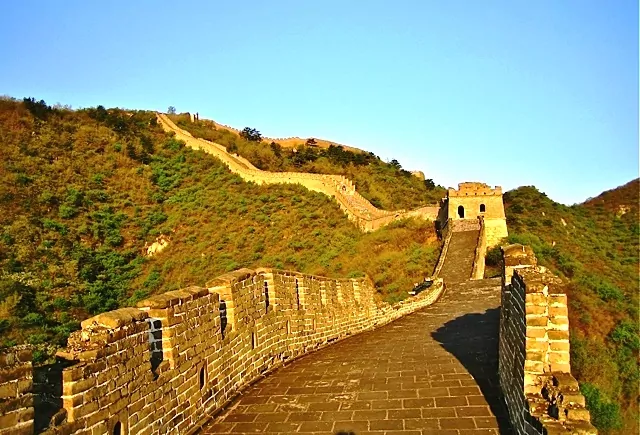
Thank you Ditte Akker for sharing your experiences and thoughts!


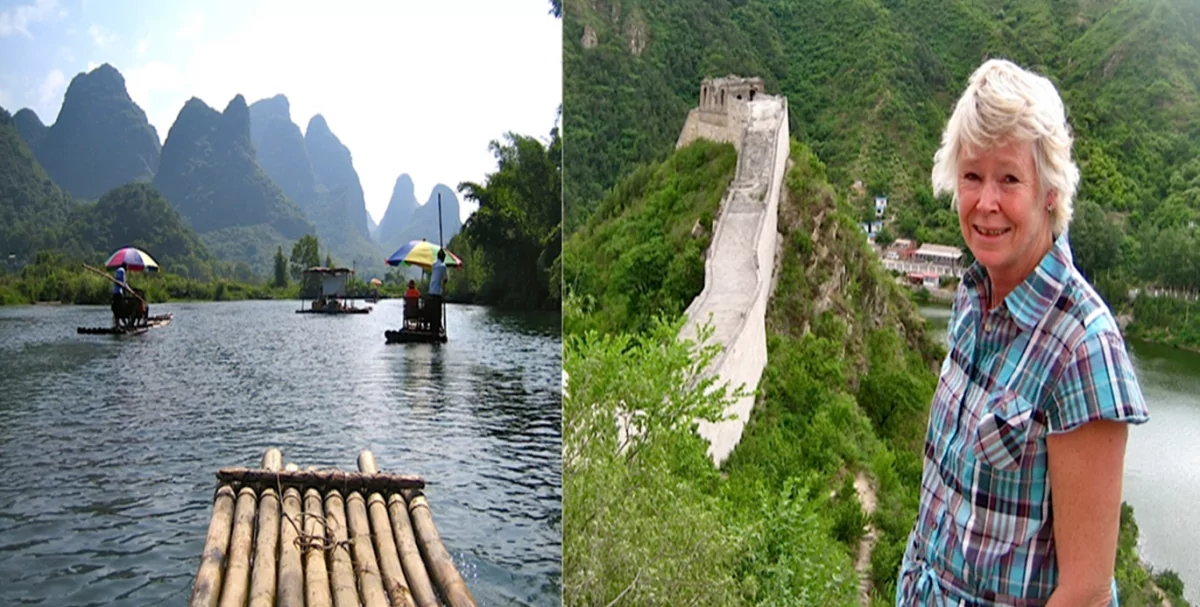






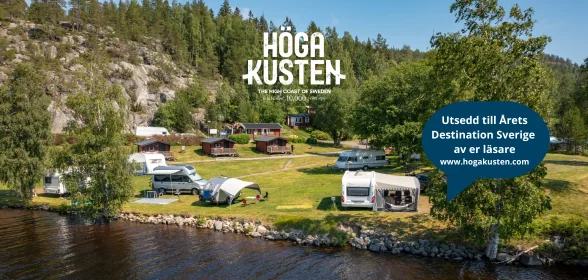

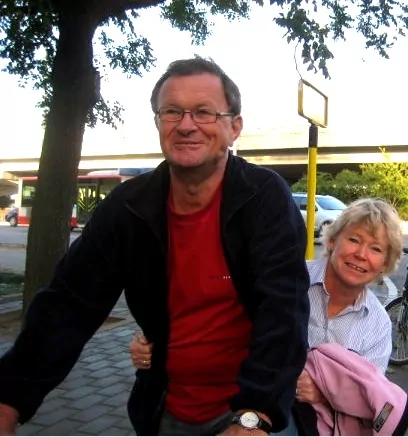

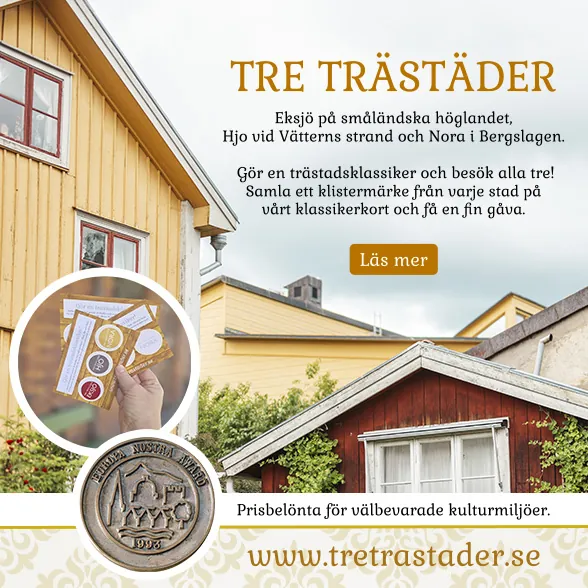
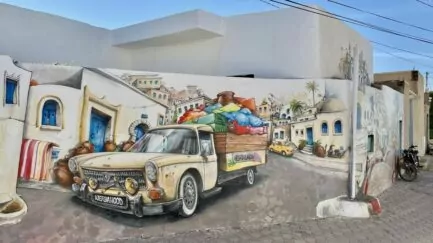

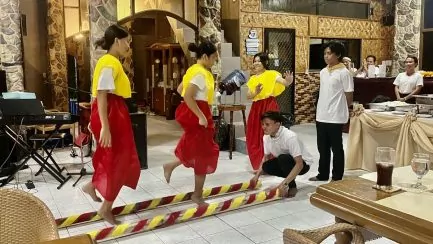


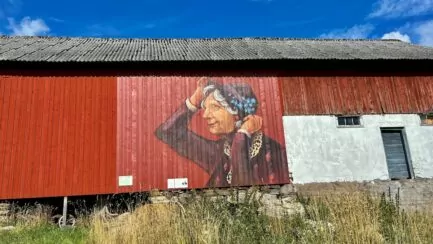



Ama de casa says:
Hmm... I wonder if I haven't read anything by Ditte before? She seems very familiar to me... 😉.
Exciting to have lived in China and many good tips there 🙂 .
05 March 2016 - 9:45
Goatfish says:
How wonderful to have Ditte as a guest blogger! 😀 I have also read much of what Ditte writes 😉 Yes, she is one of my favourite blog friends!
Will now take my time and read the long nice post here 😀.
Kram, Gerd
05 March 2016 - 9:53
Lennart says:
Exciting reading from an exciting country!
05 March 2016 - 10:16
admin says:
Ama de casa, yes haha, it might be so 😉 Yes, very many good tips for those who want to visit China and Beijing!
Geddfish, yes, I also like your blog 🙂 .
Lennart, China is indeed an exciting and fascinating country!
05 March 2016 - 10:32
Snows says:
Yes, Ditte seems familiar 😀 I really recommend her blog!
Pleasant Saturday
05 March 2016 - 11:49
Birgitta in Umeå says:
Interesting to read.
My son has moved to Shenzhen in south-east China with his Chinese wife and 3-year-old daughter.
Jonas is a bit worried that little Wilma will lose the Swedish language, hopefully she won't.
I attended a champagne brunch in Shanghai with 8 Swedish guys. It was an experience. And Jonas and Salina's wedding a few days later in Shengdou was an even greater experience.
05 March 2016 - 12:17
Comsi Comsa says:
Oh what fun, blog friend Ditte meets me when I log on to your site. 🙂
Fun story to read...
Hugging ♥
05 March 2016 - 12:33
admin says:
Znogge, I also like your blog 🙂 Wishing you a nice weekend!
Birgitta in Umeå, how exciting that her son has moved to China. Then I understand that this was extra interesting to read! It is important to find motivation to keep the Swedish language going: other children who speak Swedish, a parent who always speaks Swedish, children's programmes in Swedish... What interesting experiences you had in China, by the way! 🙂
Comsi Comsa, glad you wanted to stop by and read! 🙂
05 March 2016 - 15:01
Ditte says:
What fun to read the interview. How well you got it together!
And maybe some people can benefit from my experiences and tips for a possible trip to Beijing.
05 March 2016 - 18:42
Alexandra says:
I usually visit your blog from time to time! I love reading about Swedes who live abroad (even if she doesn't really do it right now). I have never been to China, honestly no country that is high on the wish list right now either... But someday!
05 March 2016 - 22:53
BP says:
I started following Ditte about half a year ago. But this post beats everything! I have understood that she worked in China but to get this much more "meat on the bones" in terms of her experiences is great!
An absolutely great interview! You are really good at choosing guest bloggers and varying your "interview victims".
Superbly simple:-)
05 March 2016 - 23:36
Anette says:
This post is perfect for me, as I'm going to Beijing soon and Ditte's tips will come in handy. Nice to know more about her, she is an exciting woman.
06 March 2016 - 4:00
Anki says:
Fantastic post and interview with Ditte - very nice!
Have just started reading her blog... nice to know a little more about her. Thanks for that 🙂
06 March 2016 - 7:43
admin says:
Ditte, thank you so much for taking part! As you can see, many people appreciated the interview and the travel tips. I'll link to it from the travel tips page on China, so even more people can benefit from the practical and good travel tips!
Alexandra, I also like to read the blogs of foreign Swedes. I have been to China twice and think it is an incredibly exciting country. But there are so many different countries in the world to dream about! 🙂
BP, thank you for your nice comment! It feels really fun to blog when you get such comments! 🙂
Anette, but oh so good, then it fits perfectly with all these concrete tips!
Anki, glad you enjoyed the interview! Thank you for your comment!
06 March 2016 - 8:12
admin says:
Steve, good question about Beijing and Peking! I think (someone can correct me if necessary) that there are two different transcriptions to Western letters from the Chinese word (which is certainly pronounced differently in different dialects). My own understanding is that Peking was used more often in the past and Beijing more often today, but I don't know which is correct in Swedish (probably both?).
06 March 2016 - 10:27
Mr Steve says:
Another fascinating "adventurer" from your guest list.
Imagine how much you can experience if you just dare.
This interview gives a much more positive picture of China and Beijing than the one usually conveyed. At least I think so.
Why is Beijing sometimes used and sometimes Beijing?
06 March 2016 - 9:34
AuntieGlad says:
Ditte is a very nice and dear blogging friend of mine.
It is so interesting to read about everything she has been through.
Wishing you a great Sunday!
06 March 2016 - 12:34
Ditte says:
One answer: Beijing means the "northern capital" and in Chinese it is called and written that way, but with characters of course. (For those of us who don't read Chinese characters, pinyin, the Romanisation of Chinese characters, is used to enable us to pronounce them. Pinyin was invented in the early 1900s by two Britons).
The Chinese themselves refer to their capital as Beijing and would like others to do the same.
Peking is the western interpretation of "Beijing" before pinyin was invented, but if used, it should be pronounced "Peh-king" which is rarely done.
06 March 2016 - 12:40
admin says:
Aunty Glad, I'm glad you enjoyed the interview with Ditte!
Ditte, thanks for the clarification and good explanation!
06 March 2016 - 13:55
Eva - People in the Street says:
What a fantastic interview with Ditte about her experiences in China! Really inspiring and I just want to throw myself on the computer and book a trip to China!
06 March 2016 - 16:56
Åsa says:
Very funny and interesting reading!
06 March 2016 - 22:24
admin says:
Eva, glad you enjoyed the interview! Ditte has so many interesting experiences to share! I also get a little hungry to visit China again 🙂 .
Åsa, glad to hear that you liked the interview 🙂 ðŸ™'
07 March 2016 - 0:05